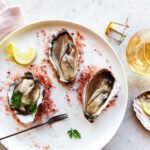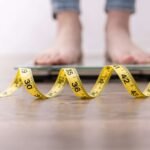Table of Contents
For decades, egg yolks and butter have been vilified in the health and nutrition world, often blamed for contributing to heart disease and high cholesterol.
Prepare to have your assumptions challenged and your culinary horizons expanded as we uncover the truth about these misunderstood dietary staples.
Are eggs and butter harmful to the heart?
No, this is a myth. Eggs and butter are safe to consume and are not responsible for clogging arteries or causing heart attacks as previously believed.
Benefits of vitamin K
- Vitamin K1: Helps in blood clotting and prevents internal bleeding.
- Vitamin K2: Helps in building strong bones and teeth and transporting calcium deep into the body.
The sources of vitamin K2
The main sources are egg yolks and butter from grass-fed cows. It can also be found in goose liver.
How does vitamin K2 work with vitamin D?
Vitamin D helps drive calcium into the blood, while vitamin K2 helps push calcium into the bones.
What are the risks of vitamin K2 deficiency?
Vitamin K2 deficiency can lead to arterial calcification due to the body’s inability to properly transport calcium.
Benefits of butter from grass-fed cows
- Vitamin A in it is 3 times more effective than fish oils.
- Vitamin D in it is 100 times more effective than commercial vitamin D.
Can eggs and butter be consumed safely?
Yes, eggs and butter can be consumed safely. The author refers to his personal experience of eating 4 eggs daily for 25 years while maintaining good cholesterol levels and excellent health.
So let’s dive into the details…
The egg yolk and butter myth

Let’s talk about the butter and Egg Yolk myth. Now I know you were taught that you need to stay away from butter and egg yolk because it’s going to clog your arteries and Cause heart attacks, but in fact that’s what I was taught [to] but it’s not actually true. That’s a it’s it’s it’s a myth.
- Common misconception: butter and egg yolks clog arteries and cause heart attacks
- This belief is actually a myth
The benefits of grass-fed butter

Especially if you consume grass-Fed butter now There is a vitamin vitamin K that has two different versions you have Vitamin K1 and Vitamin K2.
Vitamin K1 is from plant sources and that actually helps you clot, okay? And that’s a good thing because if you didn’t have this you would bleed internally.
Vitamin K2 Actually has a different function by making bones making strong bones making teeth [so] it helps transport the calcium deeper into the body so vitamin D.
- Grass-fed butter is particularly beneficial
- Vitamin K has two versions: K1 and K2
- K1 is from plants and helps with blood clotting
- K2 helps make strong bones and teeth
How vitamins K2 and D work together
Helps drive the calcium into the blood. Vitamin K2 with the help of other vitamins pushes it into the bone itself.
So if you’re deficient vitamin 2 you get a higher level of calcium that doesn’t make it all the way and you start getting Calcification of your arteries yeah, that’s a deficiency of Vitamin K2 so Basically the source of Vitamin K1 is from Plants or like spinach and vegetables.
But you also have vitamin K2 which doesn’t come from vegetables it comes from The animals that eat the vegetables especially the animals that eat the grass.
- Vitamin D helps drive calcium into the blood
- Vitamin K2 pushes calcium into the bones
- K2 deficiency can lead to arterial calcification
- K1 comes from plants, K2 from animals that eat grass
Egg yolk benefits

so the main two sources of K2 Are egg, yolk and Grass-Fed butter, not corn-Fed cows that then make the butter, but cows that actually eat the grass. You can also find Vitamin K2 in goose liver if you can find it.
so that’s the that’s the benefit of egg. Yolk and butter I consume a lot of egg yolk, and I’ve been doing it for 25 years.
- Main sources of K2: egg yolk and grass-fed butter
- Goose liver is also a source of K2
- Personal experience: consuming egg yolk for 25 years
Personal experience with egg consumption
I eat four eggs every single day. My cholesterol is really good, and I’m very very healthy, so I Used to crave butter as a kid.
I used to [eat] just a whole pound of butter And I apparently I needed this nutrient to help mobilize my calcium And younger kids needed to because they require more calcium okay? So then the other thing.
- Eating four eggs daily
- Good cholesterol levels despite high egg consumption
- Childhood craving for butter linked to calcium needs
Butter benefits

I was going to mention about this is that the Vitamin A in grass-Fed butter is three times more effective than fish oils yeah, and the Vitamin D and Grass-Fed butter is a hundred times more effective Effective than commercial vitamin D.
So that’s that’s interesting so again you don’t have to be scared about consuming butter and egg yolks anymore because they’re totally safe okay, so I hope that helped and Start applying this information.
- Vitamin A in grass-fed butter is 3x more effective than fish oils
- Vitamin D in grass-fed butter is 100x more effective than commercial vitamin D
- Butter and egg yolks are safe to consume
Summary
Many people believe that egg yolks and butter are really bad for you—that they will cause clogged arteries and heart attacks. But that’s just not true.
Egg yolks and butter will not harm you if they are grass-fed. In fact, these foods are not the real culprit in clogged cholesterol arteries. Sugar is the real problem. It’s the sugar that converts to cholesterol, not the fats.
Butter and egg yolks supply the vitamin K2 necessary to keep your arteries free of soft-tissue calcium.
vitamin D helps transport calcium into the blood, and vitamin K2 helps transport the calcium into the bones. Without enough vitamin K2, you can have more calcium build up in your arteries. This contributes to clogged arteries.
Vitamin K1 is also beneficial. However, this nutrient is only plant-based.
vitamin A in butter is 3x more effective than fish oils, and vitamin D in butter is 100x more effective than commercial vitamin D.
FAQ
Are egg and butter good?
Eggs and butter can both be part of a healthy diet when consumed in moderation.
- Eggs: They are a nutrient-dense food, providing high-quality protein, vitamins (like B12 and D), and minerals (such as selenium). Whole eggs contain essential fatty acids and antioxidants that support eye health. Recent studies suggest that for most people, consuming eggs does not significantly raise cholesterol levels or increase heart disease risk, making them a healthy addition to your diet.
- Butter: This dairy product is rich in saturated fat and calories but also contains beneficial nutrients like vitamin A, vitamin D, and calcium. Grass-fed butter may offer additional health benefits, including higher levels of omega-3 fatty acids and vitamin K2. However, due to its high saturated fat content, it’s advisable to consume butter in moderation, especially for individuals with heart disease or those looking to reduce calorie intake.
Should I eat egg yolks to build muscle?
Yes, eating egg yolks can be beneficial for building muscle. While egg whites are known for their high protein content, the yolk contains essential nutrients that can support muscle growth:
- Protein: Egg yolks contain about 2.7 grams of protein per yolk, contributing to the overall protein content of whole eggs.
- Nutrients: The yolk is rich in vitamins and minerals, including choline, which is important for muscle function and metabolism. Additionally, yolks contain lipids and phospholipids that may enhance muscle protein synthesis.
Is eating egg yolk unhealthy?
Eating egg yolks is not inherently unhealthy. While yolks are high in cholesterol, recent research suggests that dietary cholesterol has a minimal impact on blood cholesterol levels for most people. In fact, egg yolks are packed with essential nutrients:
- vitamins and Minerals: They provide vitamins A, D, E, and B vitamins, as well as minerals like selenium and iron.
- Healthy Fats: The fats in egg yolks can help absorb fat-soluble vitamins and support overall health.
Is egg yolk bad for cholesterol?
- Cholesterol Response: The liver produces cholesterol, and when dietary cholesterol intake increases, the liver often compensates by reducing its own cholesterol production.
- HDL vs. LDL: Some studies suggest that eating eggs may increase levels of high-density lipoprotein (HDL), the “good” cholesterol, while having a minimal effect on low-density lipoprotein (LDL), the “bad” cholesterol.
- Individual Variability: Some individuals, known as hyper-responders, may experience a greater increase in blood cholesterol levels when consuming dietary cholesterol. However, this is not the case for everyone.




